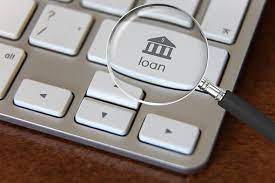When you’re willing to offer some sort of collateral, such as your home or car, getting a loan can sometimes be much simpler. Loans with collateral help you protect the money you’re borrowing and could have lower interest rates. In contrast, if you default on a collateral loan, you might be forced to give up a priceless asset. But how do collateralized loans work? Continue reading to find out what collateral loans are, what you can use as collateral, and where you can get collateral loans.
What Is a Collateral Loan?
Collateral is a valuable asset pledged for a loan in the financial industry. A collateral loan is a secured loan that requires that you own something that serves as a guarantee for the loan. In addition, the lender has the right to seize the collateral, whether it’s a piece of property, money, or other valuables.
- Car
- Savings account
- Jewelry
- Investment portfolio
- Home
- Real estate
- Insurance policies
Note that:
- A valuable item is pledged as collateral to secure a loan.
- Lenders’ risk is decreased by collateral.
- The lender has the right to sell the collateral if a borrower fails to repay the loan to recover its losses.
- Two examples of collateralized loans are mortgages and auto loans.
- You can use other personal belongings, like an investment or savings account, to protect a collateralized personal loan.
How Do Collateral Loans Work?
You can anticipate more favorable loan terms with a collateral loan compared to an unsecured loan. Advantageously, this could entail a reduced rate of interest, a bigger loan, or a loan with a longer term.
Furthermore, lenders will take the time to assess the value of your collateral before approving you for a collateral loan. To do this, they will take into account the fair market value of the things you own, or in the case of a mortgage, the home’s appraised value. They will then offer you a portion of the value of your collateral to determine the loan amount. For instance, when approving a mortgage, a lender will take the potential resale value of the property into account.
With a mortgage, the loan-to-value ratio (LTV) a lending institution will attach to your loan directly reflects the value of your collateral. In general, you can anticipate paying more in interest charges and closing costs the higher your LTV. Additionally, you’ll need a bigger down payment. You’ll know your lender is ready to lend you a sizeable sum of money if your LTV is 80%, but you’ll have to pay the remaining 20% out of pocket.
Types of Collateral to Secure a Loan
#1. Real Estate Collateral:
A lot of businesses use real estate as collateral for loans. Mortgages and business loans frequently follow this pattern.
Real estate is viewed favorably by lenders because it holds its value well over time. Additionally, real estate is frequently worth several hundred thousand dollars, giving you, the borrower, a chance to get more money.
Consequently, while it has its pros, there is also a high risk involved. For instance, you risk losing your home if you use your primary residence as collateral and go into default on your loan.
#2. Business Equipment Collateral:
Business equipment can be a viable and low-risk type of collateral, especially for construction or manufacturing businesses. However, it tends to lose its value over time, making it unlikely to be used to secure large amounts of funds. Some lenders may be wary of accepting certain business equipment due to difficulty finding an interested buyer.
#3. Inventory Collateral:
Businesses that sell products, like retail stores or online stores, may be able to obtain financing by using their inventory. However, given that inventory can be challenging to sell, some lenders might be reluctant to accept it as collateral.
Note that your revenue may suffer as a result of using inventory. Therefore, if you fall behind on payments, you risk losing access to inventory and, consequently, your ability to make a profit. Furthermore, this might get you into a dilemma with other creditors or even force your company into bankruptcy.
#4. Invoices Collateral:
Businesses with outstanding invoices and late payments can benefit from financing in exchange for a claim on their outstanding invoices. However, lenders will still charge fees or interest, meaning businesses will end up earning less money than if their clients paid them directly.
#5. Blanket Lien Collateral:
Contrary to other forms of collateral, blanket liens give you the power to seize every asset owned by your company if you are unable to pay back the loan.
However, blanket liens put borrowers at risk while providing significant protection for lenders. Therefore, if you can’t pay off your debts, you might lose everything you own. Typically, only banks would use this arrangement.
#6. Cash Collateral:
You ought to be able to use any extra funds in your personal or business bank account to support a secured loan. Cash is a common form of collateral used by traditional lenders like banks because it is simple to understand.
However, lenders do not have to sell physical assets to recover their money if a borrower defaults on their obligations. Therefore, this may result in borrowers paying reduced interest rates and fees.
#7. Investment Collateral:
Stocks and bonds are examples of investments that can be used as security for business loans since investments are liquid assets that can be quickly sold off to pay lenders, much like cash. Although this is a typical form of collateral for banks, fintech lenders don’t frequently use it.
However, depending on the state of the market, investment valuations can change. If the valuation of your investments falls far below the amount you borrowed, you may be in trouble.
What Can Be Pledged As Collateral?
You may use the following items as security for collateral loans:
#1. Vehicles:
Movable assets include machinery and vehicles. Loans secured by movable items with a marketable value are known as collateral loans. Therefore, a borrower may occasionally be asked to give up physical possession of a movable asset to obtain a collateral loan from a lender.
#2. Gold and other valuables:
Due to its value, gold can be used as collateral for loans. As a result, gold bars, and jewelry can be used as collateral. Additionally, other valuable items can be used as collateral for loans, including works of art.
#3. Land or property:
The most typical type of collateral is real estate. Financial companies can use your home or a valuable piece of land to protect themselves and provide a loan.
#4. Personal investments:
You could also use your assets as collateral. Stocks, bonds, and mutual funds are all part of it. Additionally, sovereign gold bonds may be pledged as security to obtain a collateral loan from a bank.
Where can you Find Loans with Collateral?
#1. Banks:
If you already have a bank account, you might be eligible to receive money immediately after you apply or the following business day. However, when taking out a car loan, be aware of any potential limitations on the brand, mileage, or year of the vehicle you wish to purchase.
#2. Credit unions:
Their rates are typically lower than bank rates, but you’ll probably need to be a credit union member to qualify.
#3. Online lenders:
You might have to apply for an unsecured loan first before seeing a secured loan option because many online lenders only offer unsecured loans.
#4. Auto dealerships:
Loans for the purchase of new cars are typically provided by automakers through their dealerships. Although rates are frequently competitive with those provided by banks, the best rate requires good credit.
#5. Storefronts loans:
This form of loan is a short-term loan that requires that you have funds in your checking account. Consequently, you should expect sky-high interest rates.
How Hard Is It to Get a Collateral Loan?
In comparison to an unsecured loan, the application process may be more challenging. Therefore, you might be requested to provide greater details than when applying for an unsecured loan because lenders must value the assets you use to guarantee a collateral loan. However, the procedure — and the length of that procedure — can differ by lender.
What are Examples of a Collateral Loan?
#1. Residential Mortgages:
A mortgage is a loan where the house serves as security. The loan servicer may start legal proceedings if the homeowner stops making mortgage payments for at least 120 days. Therefore, these actions may result in the creditor subsequently seizing control of the home through foreclosure. Consequently, the property can be sold to pay off the loan’s remaining principal once it has been transferred to the lender.
#2. Home Equity Loans:
Additionally, a house could serve as security for a second mortgage or home equity line of credit (HELOC). The loan amount in this situation won’t be greater than the available equity. For instance, if a home is worth $100,000 and the primary mortgage is $70,000, only $55,000 will be available for a second mortgage, or HELOC.
#3. Margin Trading:
Collateralized loans are a factor in margin trading, where an investor borrows money from a broker to buy shares, using the balance in their brokerage account as collateral. Note that this increases the number of shares the investor can buy, but also multiplies the potential gains if the shares increase in value.
Do Banks Still Offer Collateral Loans?
There are several financial institutions where you can obtain a collateral loan, including banks. Therefore, if you already have a savings account with a bank, you might want to start there for a collateral loan.
Do You Need Credit for a Collateral Loan?
Collateral loans are far less risky for lending institutions because you are using an asset as security for the loan. Therefore, even if you have poor or no credit, you might be eligible for one. Typically, they provide lower interest rates. Secured loans frequently have reduced annual percentage rates, or APRs, when compared to unsecured loans.
Can I Borrow Money Using My House as Collateral?
Yes, your house can be used as collateral for loans. Real estate is often used as collateral for loans, as it retains value and is typically worth several hundred thousand dollars. However, it also comes with risks, such as losing the borrower’s primary residence if they default on the loan.
What are Collateral Loans for Business?
Any asset that a company uses to guarantee a loan is collateral. The interest rates on secured loans are typically lower than those on unsecured loans. For the majority of business loan types, collateral must be provided by the company being financed. Furthermore, real estate, machinery, stockpiles of goods, and unpaid invoices are all examples of collateral.
What are Personal Collateral Loans?
Most personal loans are unsecured, which means they don’t need collateral, but some lenders demand that personal loans be secured by items with monetary value. Therefore, a car or even a home may be used as collateral for a secured personal loan.
What are Collateral Loans With Bad Credit?
If you have collateral, you might be able to obtain a loan even with bad credit. Since the lender could recover its losses by seizing your asset if you default on your loan, adding collateral to your loan reduces risk in the view of the lender.
What are Vehicle Collateral Loans?
If you need money right away, using your vehicle as collateral for a personal loan is the best option. A secured loan called a car title loan lets you borrow money against the value of your car. This kind of loan can save your life, but it’s important to comprehend the terms and conditions.
STUDENT LOAN FORBEARANCE: What It Is & When Does It Resume?
PAYPAL BUSINESS LOAN: 2023 Review
PAYDAY LOANS: Top 2023 Best Options






